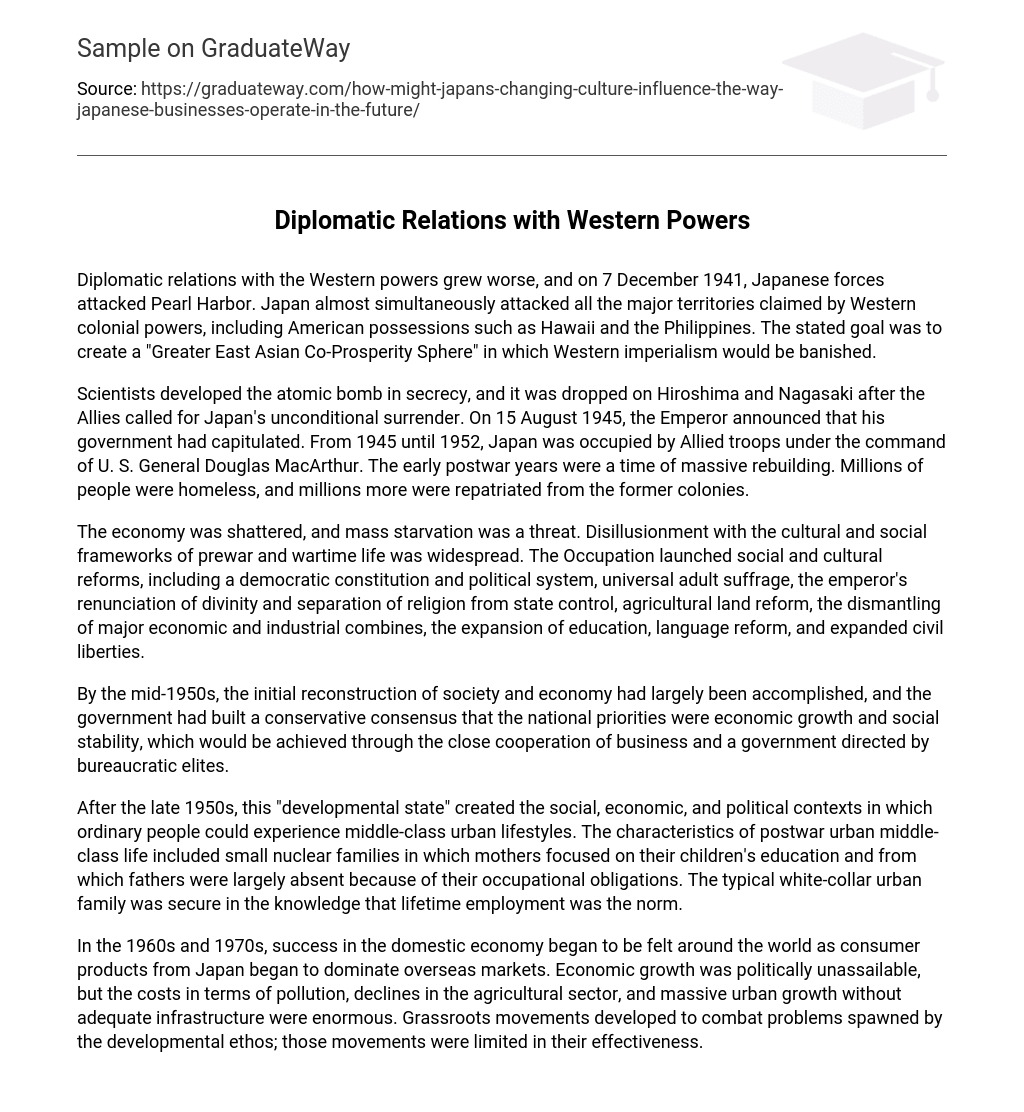Diplomatic relations with the Western powers grew worse, and on 7 December 1941, Japanese forces attacked Pearl Harbor. Japan almost simultaneously attacked all the major territories claimed by Western colonial powers, including American possessions such as Hawaii and the Philippines. The stated goal was to create a “Greater East Asian Co-Prosperity Sphere” in which Western imperialism would be banished.
Scientists developed the atomic bomb in secrecy, and it was dropped on Hiroshima and Nagasaki after the Allies called for Japan’s unconditional surrender. On 15 August 1945, the Emperor announced that his government had capitulated. From 1945 until 1952, Japan was occupied by Allied troops under the command of U. S. General Douglas MacArthur. The early postwar years were a time of massive rebuilding. Millions of people were homeless, and millions more were repatriated from the former colonies.
The economy was shattered, and mass starvation was a threat. Disillusionment with the cultural and social frameworks of prewar and wartime life was widespread. The Occupation launched social and cultural reforms, including a democratic constitution and political system, universal adult suffrage, the emperor’s renunciation of divinity and separation of religion from state control, agricultural land reform, the dismantling of major economic and industrial combines, the expansion of education, language reform, and expanded civil liberties.
By the mid-1950s, the initial reconstruction of society and economy had largely been accomplished, and the government had built a conservative consensus that the national priorities were economic growth and social stability, which would be achieved through the close cooperation of business and a government directed by bureaucratic elites.
After the late 1950s, this “developmental state” created the social, economic, and political contexts in which ordinary people could experience middle-class urban lifestyles. The characteristics of postwar urban middle-class life included small nuclear families in which mothers focused on their children’s education and from which fathers were largely absent because of their occupational obligations. The typical white-collar urban family was secure in the knowledge that lifetime employment was the norm.
In the 1960s and 1970s, success in the domestic economy began to be felt around the world as consumer products from Japan began to dominate overseas markets. Economic growth was politically unassailable, but the costs in terms of pollution, declines in the agricultural sector, and massive urban growth without adequate infrastructure were enormous. Grassroots movements developed to combat problems spawned by the developmental ethos; those movements were limited in their effectiveness.





